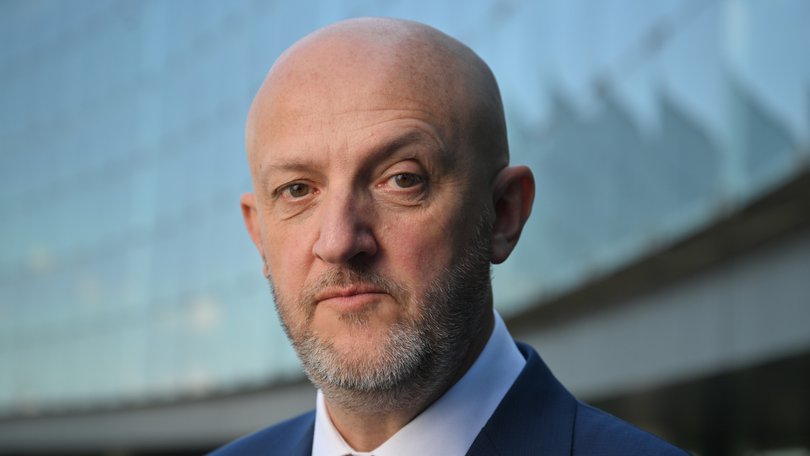ASIO spy boss Mike Burgess warns espionage at ‘unprecedented levels’ as Aussies targeted ‘more aggressively’

Australia’s spy boss has warned espionage has shot to “unprecedented levels and sophistication”, with foreign intelligence agencies exhibiting a “very unhealthy interest in AUKUS”.
Director-general of security Mike Burgess said espionage was costing Australia $12.5 billion a year and warned against complacency in his Annual Hawke Lecture in Adelaide on Thursday night.
“ASIO estimates the threat from espionage will only intensify,” he said.
Sign up to The Nightly's newsletters.
Get the first look at the digital newspaper, curated daily stories and breaking headlines delivered to your inbox.
By continuing you agree to our Terms and Privacy Policy.“Nation states are spying at unprecedented levels, with unprecedented sophistication. ASIO is seeing more Australians targeted – more aggressively – than ever before.
“ASIO has detected 24 major espionage and foreign interference disruptions in the last three years alone – more than the previous eight years combined.
“So our response must also be more serious and sophisticated than ever before.”
Recent targets have included a law firm, horticultural laboratories, a peak industry body, and exporter in attacks he labelled the “tip of an espionage iceberg”.
Among key targets in the past couple years has been AUKUS — Australia’s trilateral defence pact with the United States and United Kingdom to deliver nuclear-powered submarines.
Mr Burgess said reports had found foreign intelligence agencies had “a very unhealthy interest in AUKUS”.
“With AUKUS, we are not just defending our sovereign capability. We are also defending critical capability shared by and with our partners,” he said.
He said while the “obvious candidates” of “China, Russia and Iran” were in the mix of nations targeting Australia – the spying pool was larger and more unexpected than assumed.
“You would be genuinely shocked by the number and names of countries trying to steal our secrets,” he said.
Other areas of interest include critical minerals, rare earths extraction and processing, green technology, Antarctic research and trying to map out Australia’s critical infrastructure.
He said spies can use coercing or seducing techniques to obtain this material in person or most commonly by hacking through technology. In other cases, people have been lured with overseas trips.
Mr Burgess said ultimately, espionage damaged Australia’s economy and prosperity.
He reminded Aussies “security is a shared responsibility” after taking aim at “senior officials and executives” for “shrugging their shoulders” to the issue. He criticised others for whining about the inconvenience of taking burner phones to high-risk countries.
More recently ASIO has detected fake companies setting up job ads on popular sites to try to glean information from people.
While trying to recruit officials, public servants and military personnel, spies also try to apply for government, media or defence gigs.
“A foreign intelligence service tried to get an asset employed as a researcher at a media outlet, with the aim of shaping its reporting and receiving early warning of critical stories,” he said.
Mr Burgess also warned universities around collaborating on joint-research projects, especially with foreign researchers.
In one case a visiting academic with links to a foreign government broke into a restricted technology laboratory and filmed its contents.
He also told the keynote address that in recent years more current and former defence employees were being targeted.
Some have been subjected to covert room searches during overseas trips, approached at conferences or given gifts containing surveillance devices.
He also warned people against promoting their access to sensitive information on social media — especially LinkedIn — and made a pointed spray at those boasting their work on AUKUS.
“Close to 400 explicitly say they work on AUKUS, and the figure rises above 2,000 if you include broader references to ‘submarines’ and ‘nuclear’,” he said.
“Nearly two and a half thousand publicly boast about having a security clearance and thirteen hundred claim to work in the national security community.
“While these numbers have fallen since I first raised the alarm two years ago, this still makes my head spin.
“I get that people need to market themselves, but telling social media you hold a security clearance or work on a highly classified project is more than naïve; it’s recklessly inviting the attention of a foreign intelligence service.”
